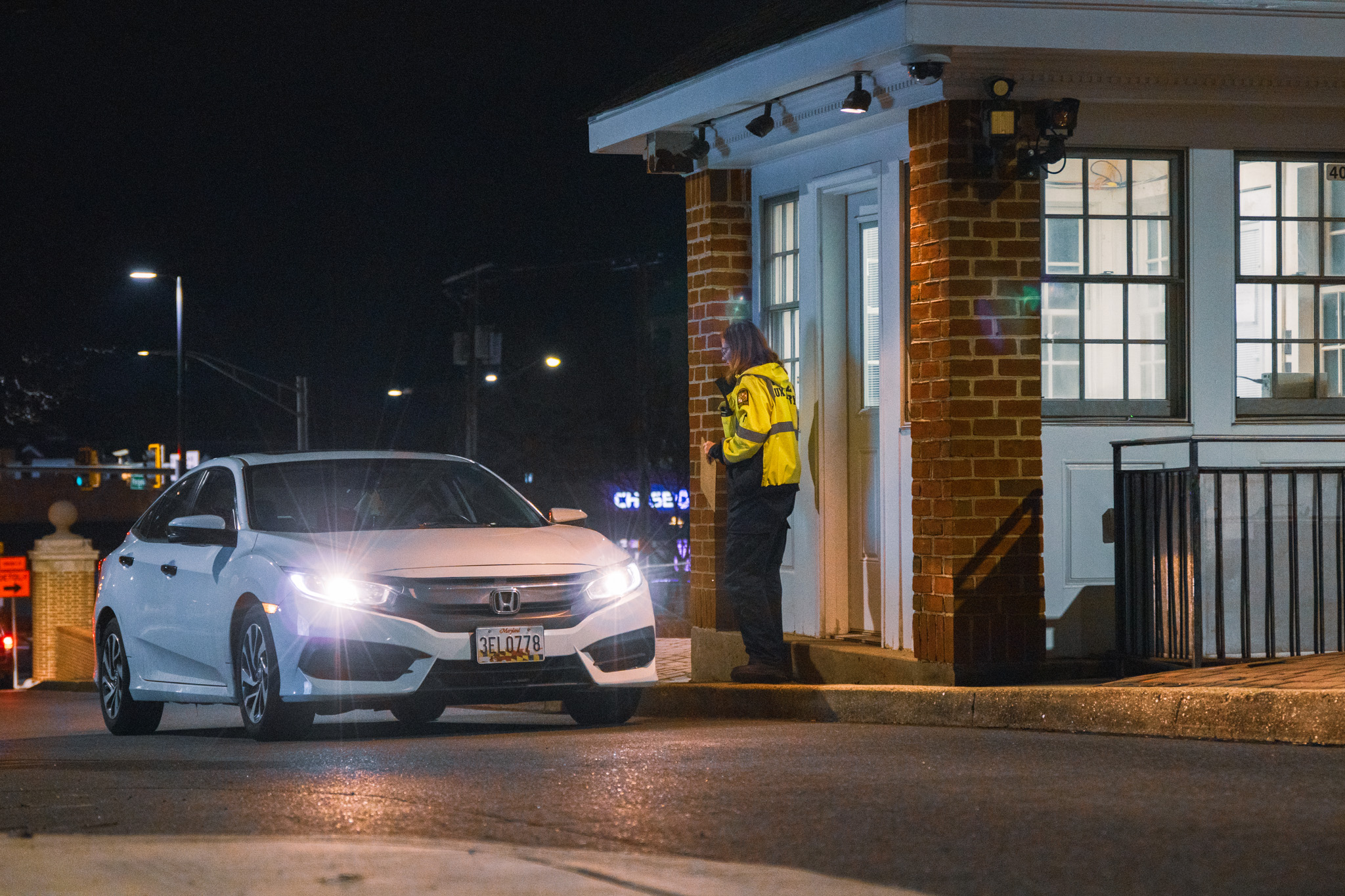Views expressed in opinion columns are the author’s own.
Recently, University of Maryland Police resumed pre-pandemic campus gate checks at night with student-volunteer auxiliary police. But why bring back a practice that doesn’t seem to actually improve student safety?
The only reasoning provided seems to be just that the unit has hired enough people to get back to manning the entrances to this university at night. We shouldn’t simply assume that these checks make our campus safer. These gate checks present a facade of extra security for administrators’ peace of mind. This largely symbolic gesture does nothing but make life more inconvenient for residents, delivery drivers and the student employees who man the gates.
Stationing students with no legal authority to ask drivers for identification at the gates just doesn’t make sense. If we buy into the argument that these ID checks really deter potential threats to campus security, why is UMPD putting underprepared students in harm’s way? On the other hand, if these gate checks aren’t preventing any threats, or even worse, letting them in while maintaining a false sense of security, then what purpose do they serve?
In fact, these ID demands are rendered basically obsolete by the fact that residential buildings require swipe access. It would take quite the effort for any ne’er do-wells to access a student area, the easiest part of which is probably getting past unenforceable student-volunteer “security.” However, the real campus safety issues don’t arise from undefined and scary outsiders, but from some of the people who have proper identification — especially when it comes to sexual assault. That is where we need to concentrate our efforts and resources as a community.
Gate checks are emblematic of the view that this administration takes on issues of safety: the threats to our campus come from elsewhere — the students of College Park are not the problem. But the uncomfortable truth when it comes to college campuses with tens of thousands of young adults is that we often are the problem. And stationing students to police the wrong things is exactly the half-assed measure that one would employ under the impression that sexual assault in places like Greek life is a non-issue.
We’ve been inundated with indecent exposure alerts to the extent that we’ve been desensitized to such a perverse crime. The fact that we joke about it is pretty bleak. The only thing bleaker is the fact that the administration isn’t doing anything effective to change it.
At what point do we say enough is enough? Unfortunately, for the optics surrounding campus security, students are the biggest threat to other students. Denying that fact and turning resources away from solving it only further obfuscates the problem, and asking for student IDs changes nothing.
Instead, we need to invest in preventative measures, more comprehensive research and data for such problems on campus. Research demonstrates that college is much too late to begin sexual assault prevention training. Many people do not learn anything about sexual assault until then. Keeping our campus safe starts long before the admissions cycle, and both the university and state of Maryland ought to pour resources into that.
All gate checks do is take resources away from fighting potential threats on or near campus. Much more salient uses of institutional funding could include increased investment into CARE or consent training.
For instance, initiatives such as frequent and mandatory bystander training could be a requirement for students and faculty. Such a proactive approach helps prevent potential incidents and helps cultivate a culture of empathy, consent and mutual respect that the university should stand for. It reinforces the idea that everyone plays a role in maintaining a secure and supportive community, and promotes a sense of shared responsibility for the well-being of us all. More funding for research could also go a long way, as the literature on such initiatives tends to be scarce due to the widespread underreporting of incidents.
Furthermore, there needs to be a concerted effort to promote an actually useful function of the auxiliary police: providing student escorts on demand. Seeking to protect our peers and friends is a noble thing, but standing at the entrance to campus off Route 1 just doesn’t do that.
The university ought to step up and be on the cutting edge of the real issues students face, rather than returning to archaic ID checks that serve no purpose aside from creating awkward interactions between students. Quit the gate checks and let’s get to work solving real problems.
Rohin Mishra is a senior economics and government and politics major. He can be reached at rohinpmishra@gmail.com.



